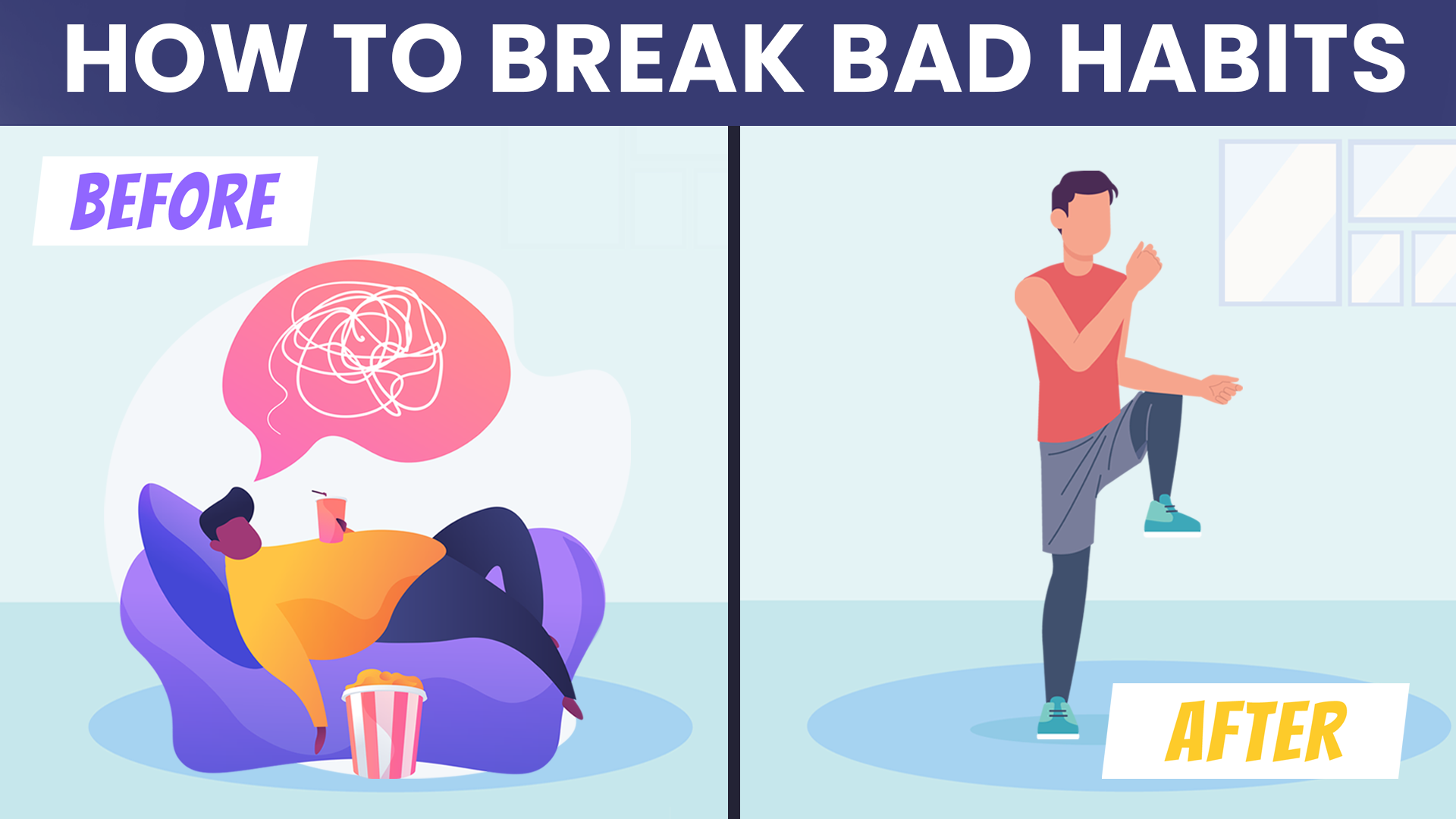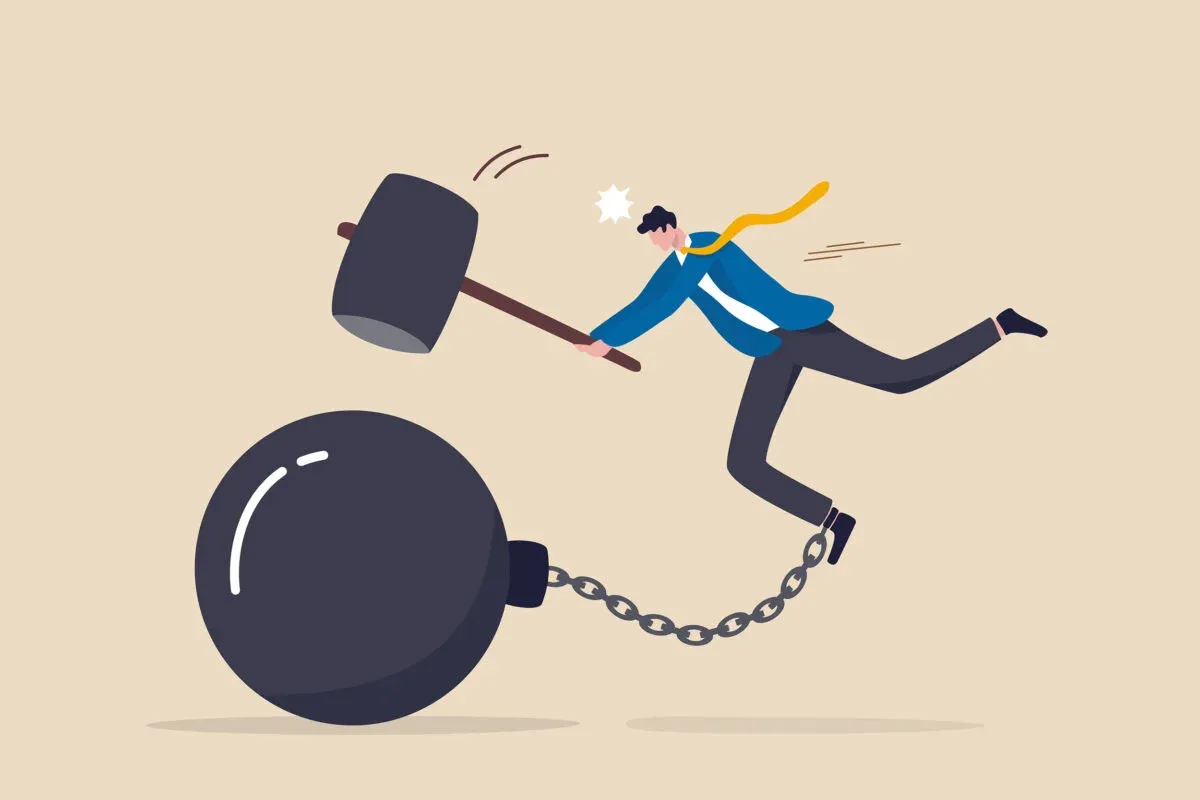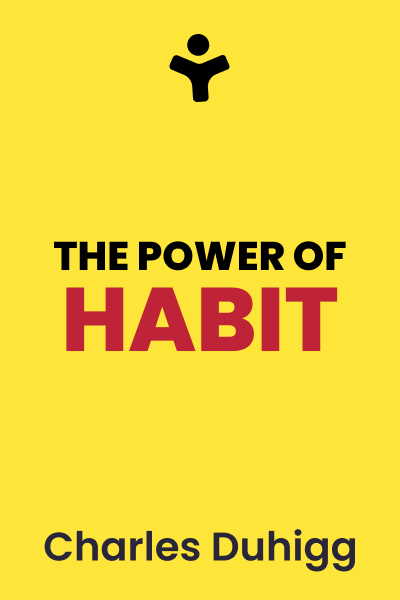Content Summary
Have you ever found yourself trapped in a cycle of old habits that seem impossible to break? You're not alone. The problem lies not in your desire to change but in the system you have in place for change.
Bad habits persist because they are deeply ingrained in our daily routines and behaviors. However, with the right system for self-improvement, you can break free from old patterns and elevate your life to new heights.
n this article, we will explore the importance of recognizing the role of systems in personal transformation and provide you with a proven system to initiate positive change.
The Problem is Your System
Many individuals struggle with changing their lives for the better because they focus solely on setting goals without considering the underlying systems that drive their behaviors.
Goals are important, but they are merely the destination. The key lies in the systems you implement to reach those goals. As James Clear, the author of "Atomic Habits," aptly said, "You do not rise to the level of your goals. You fall to the level of your systems."
The Role of Habits
Habits are the building blocks of our systems. They are the automatic behaviors and routines that shape our daily lives. Whether it's the habit of procrastination, unhealthy eating, or negative self-talk, our habits dictate the outcomes we experience. To change our lives, we must first identify and address the habits that are holding us back.

The Proven System for Change
Awareness and Reflection:
Start by becoming aware of your current habits and behaviors. Reflect on the patterns that contribute to your desired change. Ask yourself why you engage in these habits and how they affect your life. This self-reflection will create the foundation for self-improvement.
Set Clear Goals
While goals alone aren't enough, they provide a sense of direction and purpose. Set clear, specific, and realistic goals that align with the positive changes you want to make. These goals will serve as the target for your new system.
Identify Keystone Habits
Keystone habits are powerful behaviors that have a ripple effect on other areas of your life. Identify one or two keystone habits that, when changed, will significantly impact your overall well-being. For example, exercising regularly can positively influence your energy levels, productivity, and self-confidence.

Build New Habits
Focus on replacing old, negative habits with new, positive ones. Start small and make gradual changes. Break down your desired habits into smaller actions and consistently practice them. Over time, these small actions will become ingrained habits that support your goals.
Create Supportive Environments
Your environment plays a crucial role in shaping your habits. Surround yourself with people supporting your goals and create an environment encouraging positive behaviors. Remove temptations and distractions that hinder your progress and replace them with triggers that remind you to engage in your desired habits.
Practice Consistency and Persistence
Change takes time and effort. Practice consistency and persistence in implementing your new system. Be patient with yourself and celebrate small victories along the way. Remember that setbacks are part of the process, and each day is an opportunity to recommit to your goals.
Most FAQs about Bad Habits:
How to Identify Bad Habits?
Identifying bad habits is an important step toward personal growth and self-improvement. Here are some strategies to help you identify and recognize your own bad habits:
Self-reflection and introspection: Take time to reflect on your daily routines, behaviors, and actions. Consider areas of your life where you feel stuck, unproductive, or dissatisfied. Ask yourself if there are any recurring patterns or behaviors that contribute to these negative outcomes.
Seek feedback from others: Sometimes, it can be difficult to objectively identify our own bad habits. Reach out to trusted friends, family members, or colleagues and ask for their honest feedback. They may be able to provide insights or observations about habits that are holding you back.
Assess your goals and values: Evaluate whether your current habits align with your long-term goals and values. Consider whether certain behaviors are hindering your progress or contradicting the person you aspire to be.
Observe your emotional and physical well-being: Take note of how certain habits make you feel emotionally and physically. Do they contribute to stress, anxiety, or negative emotions?
Are they detrimental to your overall well-being? Recognize any habits that have a negative impact on your mental, emotional, or physical health.
Track your daily activities: Keep a journal or use habit-tracking apps to monitor your daily activities. Take note of any behaviors that you engage in consistently, even if they are counterproductive or harmful. This tracking can help you identify patterns and recognize habits that need to be addressed.
Consider external consequences: Evaluate if any of your habits have negative consequences in your relationships, work, finances, or other areas of life. Look for signs of dysfunction or problems caused by specific behaviors.
Notice triggers and cues: Pay attention to the situations, emotions, or environmental cues that lead to engaging in certain habits. Identify the triggers that prompt the unwanted behaviors. Understanding the triggers can help you become more aware and proactive in breaking the habit loop.
Reflect on feedback from past experiences: Think back to situations where you have received feedback, experienced setbacks, or faced challenges. Consider if any of these situations were related to recurring habits or behaviors that hindered your progress or success.
Remember, the process of identifying bad habits requires self-awareness, honesty, and a willingness to confront uncomfortable truths. Be patient with yourself and approach this self-reflection process with self-compassion.
Once you have identified your bad habits, you can then work on replacing them with healthier, more productive behaviors.
What are the 5 Most Common Bad Habits?
While the most common bad habits can vary from person to person, here are five examples of common bad habits that many individuals struggle with:
Procrastination: Procrastination is a habit of delaying or postponing tasks or responsibilities. It often leads to increased stress, missed deadlines, and reduced productivity.
Nail-biting or other nervous habits: Nail-biting, hair-pulling, or other nervous habits are often a response to anxiety or stress. These habits can be damaging to physical health and can also indicate underlying emotional distress.
Mindless snacking or unhealthy eating: Mindlessly snacking on unhealthy foods or engaging in poor eating habits can lead to weight gain, nutritional deficiencies, and negative impacts on overall health.
Excessive screen time: Spending excessive amounts of time on screens, whether it's watching TV, browsing social media, or playing video games, can negatively impact productivity, sleep patterns, and overall well-being.
Negative self-talk: Engaging in negative self-talk involves consistently criticizing oneself, focusing on flaws, and doubting one's abilities. This habit can erode self-esteem, contribute to anxiety and depression, and hinder personal growth.
It's important to note that these habits are not exhaustive, and individuals may have their own unique bad habits that they struggle with. Recognizing and addressing these common bad habits can be a step toward personal growth and improvement.
By replacing these habits with healthier alternatives and implementing strategies for positive change, individuals can work towards breaking free from these negative patterns and fostering a more fulfilling and balanced lifestyle.
Which Bad Habits Can Damage Your Brain?
Certain bad habits can have detrimental effects on brain health. Here are a few examples of habits that can potentially damage the brain:
Excessive alcohol consumption: Chronic and heavy alcohol consumption can lead to alcohol-related brain damage. Prolonged alcohol abuse can result in memory loss, cognitive impairment, decreased brain volume, and increased risk of conditions such as alcohol-related dementia.
Substance abuse: The use of illicit drugs or misuse of prescription medications can have severe consequences on brain health. Drug abuse can disrupt brain chemistry, impair cognitive function, and increase the risk of addiction and mental health disorders.
Chronic stress: Persistent and unmanaged stress can have negative effects on the brain. It can contribute to the overproduction of stress hormones, such as cortisol, which can lead to structural and functional changes in the brain, impaired memory, and increased risk of mental health problems.
Poor sleep habits: Consistently getting insufficient sleep or having irregular sleep patterns can negatively impact brain function. Sleep deprivation can impair cognitive performance, attention, memory, and overall brain health.
Sedentary lifestyle: Leading a sedentary lifestyle, with minimal physical activity, can harm brain health. Lack of exercise can contribute to reduced blood flow to the brain, lower cognitive function, and increased risk of cognitive decline and neurodegenerative diseases.
Unhealthy diet: A diet high in processed foods, saturated fats, and refined sugars, and low in essential nutrients can have adverse effects on brain health. It can lead to inflammation, oxidative stress, and increased risk of conditions such as obesity, diabetes, and cognitive decline.
Chronic lack of mental stimulation: Failing to engage in activities that stimulate the brain, such as learning, problem-solving, and social interaction, can contribute to cognitive decline and reduced brain plasticity.
It's important to note that the impact of these habits on brain health can vary based on factors such as frequency, duration, and individual susceptibility.
Adopting healthy habits, such as regular exercise, a balanced diet, stress management, quality sleep, and engaging in mentally stimulating activities, can promote brain health and overall well-being.
If you are concerned about any habits you may have and their impact on your brain health, it is advisable to consult with a healthcare professional.
How to Change Bad Habits Into Good Habits?
Changing bad habits into good habits requires dedication, patience, and a structured approach. Here are steps to help you make the transition:
Identify the habit you want to change: Clearly identify the specific habit you want to transform. Be specific about the behavior you want to replace and define what the new desired habit will look like.
Understand the underlying triggers and rewards: Explore the triggers or cues that prompt the undesirable habit. Determine the underlying reasons for engaging in the habit, such as stress, boredom, or emotional triggers.
Also, consider the rewards or benefits you associate with the habit. Understanding these factors will help you develop effective strategies for change.
Set realistic and specific goals: Set clear and achievable goals that align with the new habit you want to adopt. Make sure your goals are measurable and time-bound, allowing you to track your progress effectively.
Create a replacement habit: Instead of focusing solely on eliminating the bad habit, develop a specific replacement habit that serves the same purpose or provides a similar reward.
For example, if you want to reduce excessive snacking, replace it with the habit of drinking water or chewing gum when you feel the urge to snack mindlessly.
Implement positive reinforcement: Reinforce the desired habit by rewarding yourself for practicing it consistently. Rewards can be intrinsic, such as feeling proud of your progress, or extrinsic, such as treating yourself to something you enjoy. Celebrate small victories along the way to maintain motivation and momentum.
Implement environmental changes: Modify your environment to support the new habit. Remove or reduce triggers that tempt you to engage in the old habit, and create environmental cues that remind and encourage you to practice the new habit.
For example, if you want to develop a reading habit, place a book on your bedside table as a visual reminder.
Practice consistency and repetition: Consistency is key when establishing new habits. Commit to practicing the new habit regularly, ideally on a daily basis. Repetition helps solidify the habit in your routine and rewires the neural pathways in your brain.
Seek support and accountability: Share your goals and progress with a supportive friend, family member, or a trusted accountability partner. They can provide encouragement, and motivation, and help keep you accountable in your journey of habit change.
Be patient and embrace setbacks: Changing habits takes time, and setbacks are part of the process. If you slip up or revert to the old habit, view it as an opportunity for learning and growth. Revisit your strategies, make adjustments if needed, and recommit to practicing the new habit.
Remember, breaking bad habits and forming new ones requires persistence and self-compassion. By implementing these steps consistently, you can gradually replace old habits with positive behaviors and create a foundation for long-lasting change.
Author's Choice of Bad Habits Change Tools:



How to Break Bad Habits>>>
Conclusion
To change your life for the better, it's essential to recognize the role of systems and habits. By understanding that bad habits persist due to faulty systems, you can implement a proven system for change.
By cultivating self-awareness, setting clear goals, identifying keystone habits, building new habits, creating supportive environments, and practicing consistency, you can break free from old habits and unlock a life of growth, fulfillment, and success.
Embrace the power of the right system, and embark on your journey of self-improvement with confidence and determination.
Relevant Reads>>>














